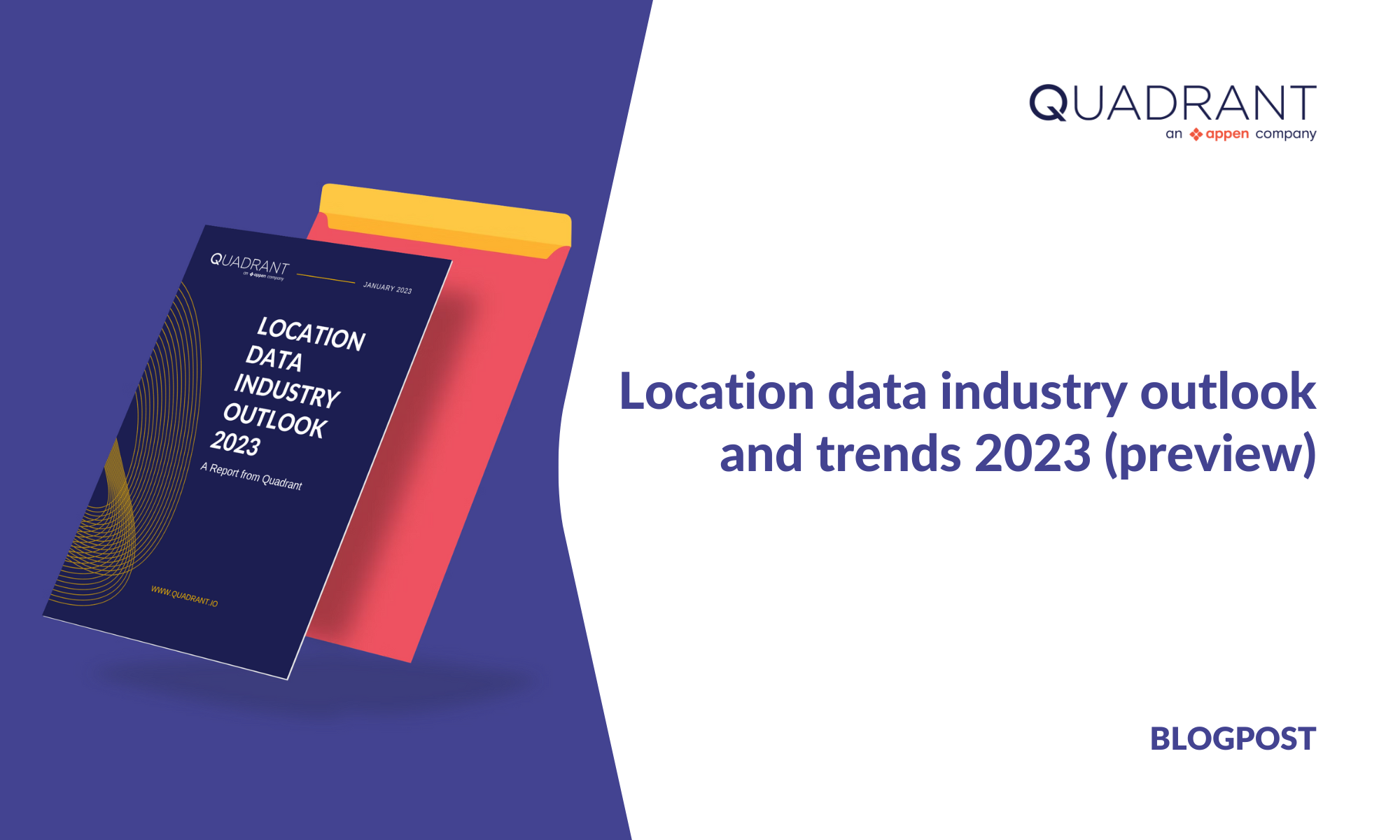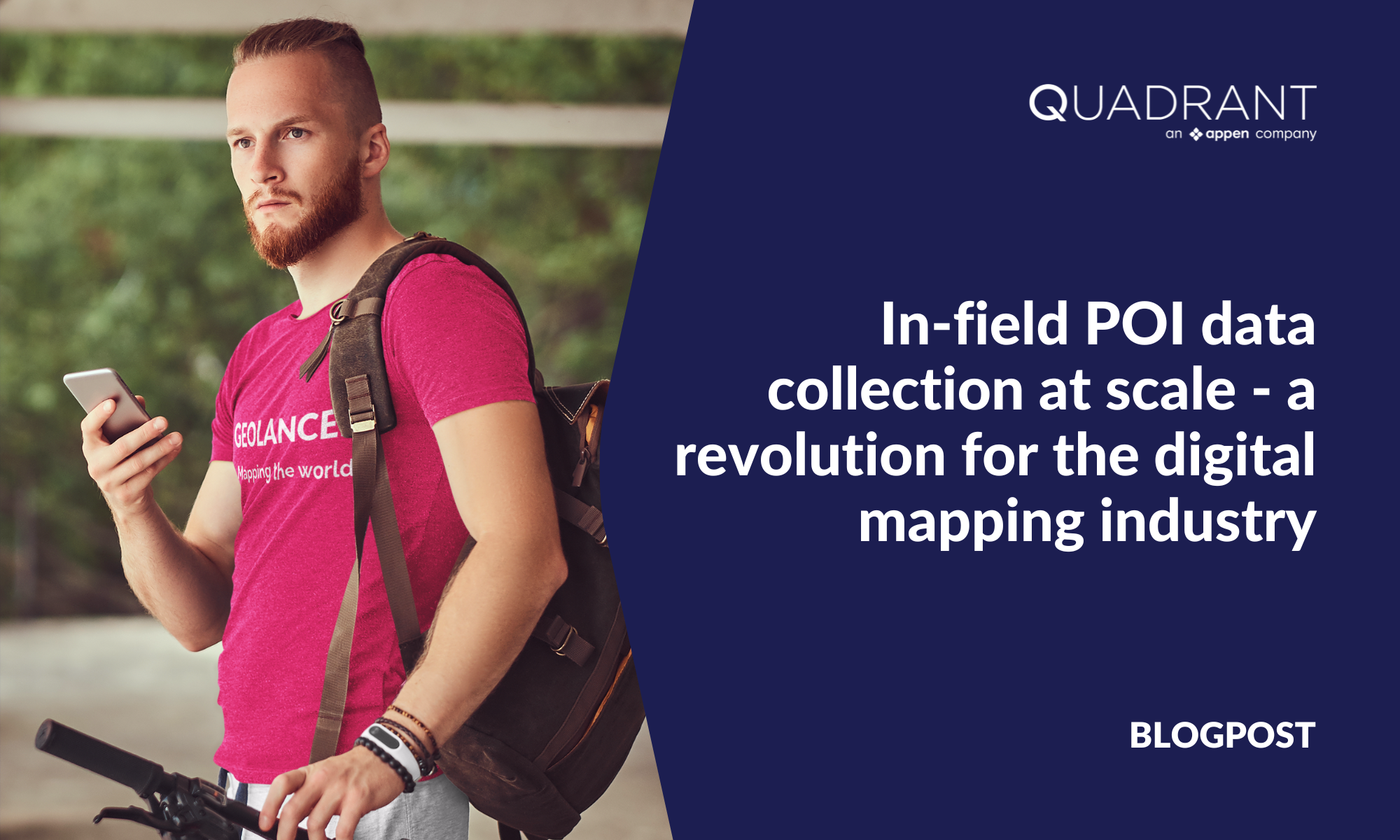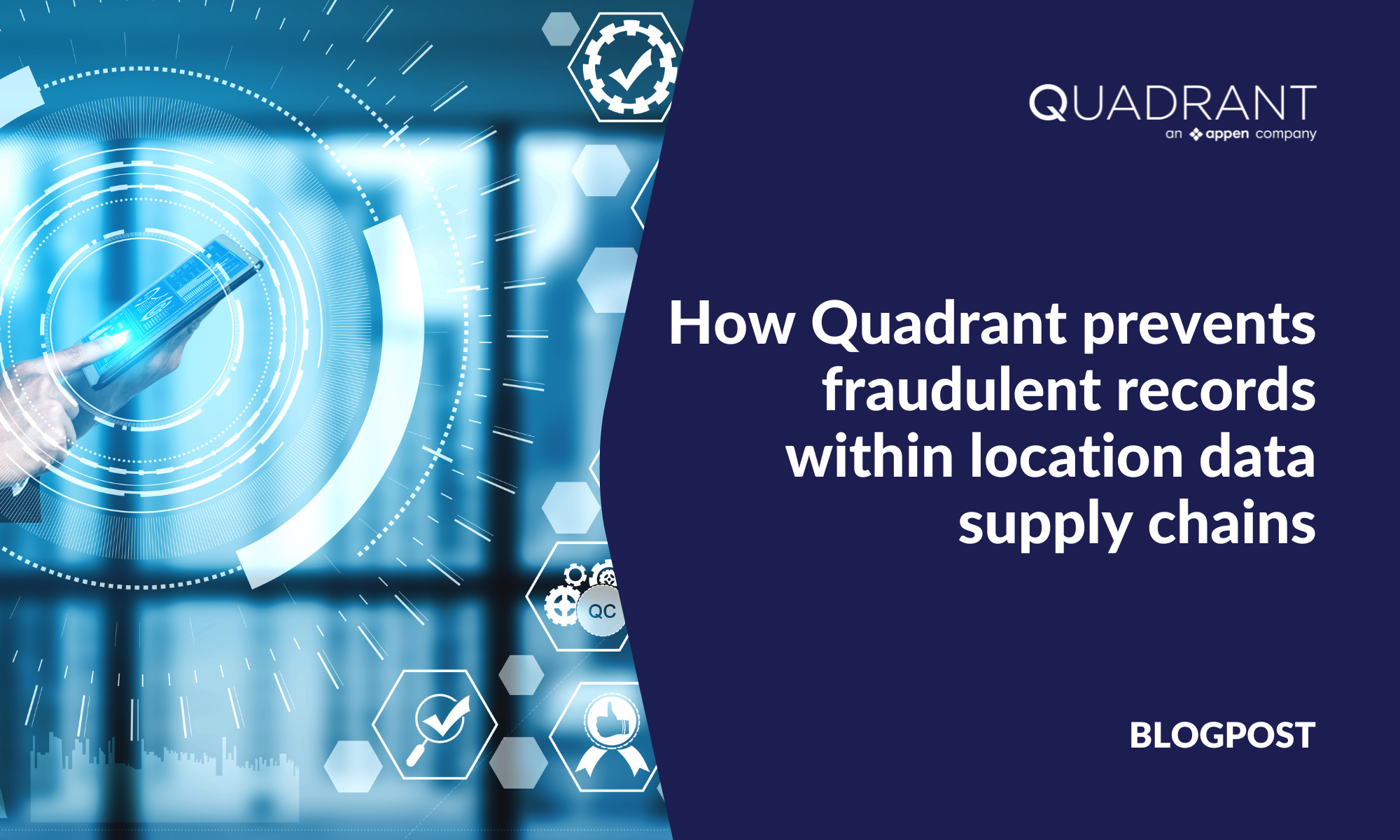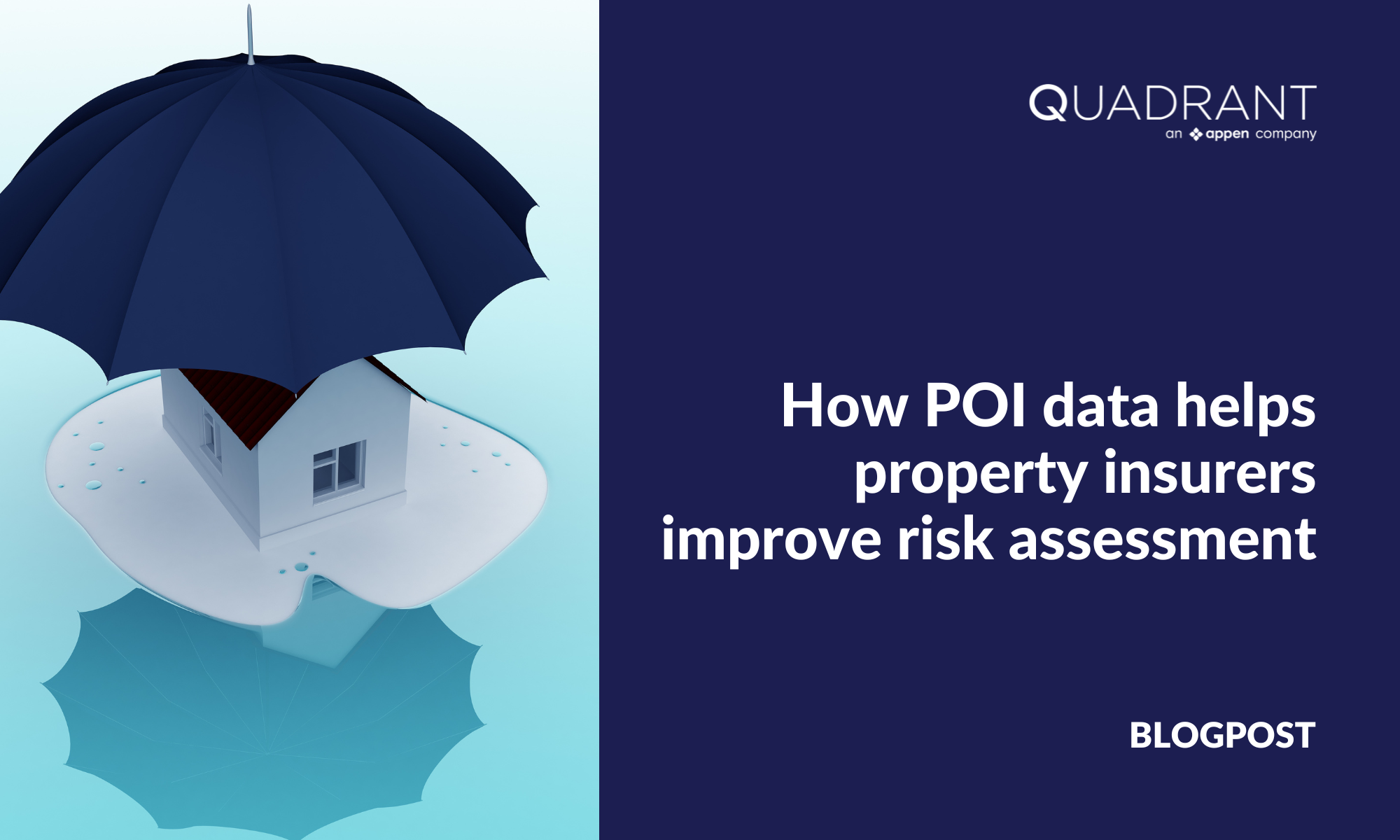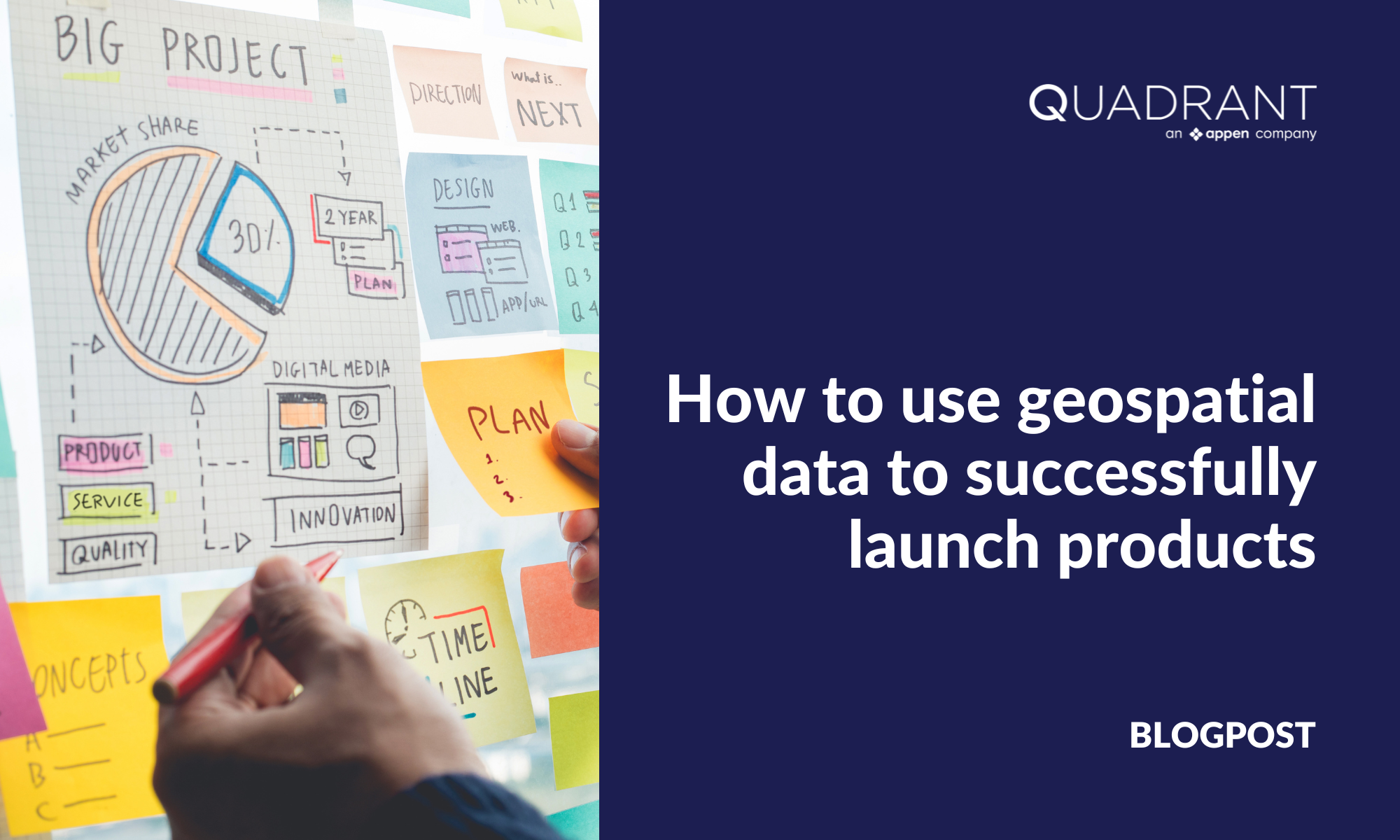Latest Updates
Lorem ipsum dolor sit amet consectetur adipiscing elit tortor eu egestas morbi sem vulputate etiam facilisis pellentesque.

Aqfer Announces New Partnership With Quadrant
Aqfer, a leading provider of big data marketing solutions, has announced a new partnership with...
-1.png)
Geolancer database doubles in just 10 weeks - hitting 500,000 POI
A few weeks ago, we announced that Quadrant had collected 250,000 POIs through Geolancer. Today, we...

